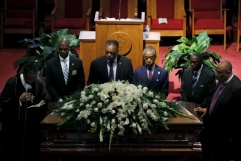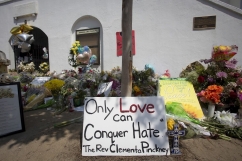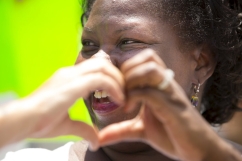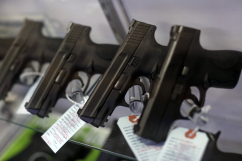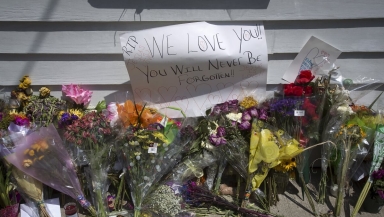
Relatives and friends of the victims of last month's shooting in a Charleston, South Carolina church traveled to Washington on Wednesday to demand that US lawmakers vote on legislation to expand background checks on gun sales.
But their chances of success are at best considered slim. Similar legislation failed a Senate vote two years ago after 20 children were shot to death in the Sandy Hook school massacre in Connecticut.
"I'm here today to speak up on behalf of the Charleston community and all who are sick and tired of Congress ignoring the problem of gun violence," said Andre Duncan, whose aunt Myra Thompson was slain in the Charleston church on June 17.
Duncan urged Congress to close loopholes in the so-called Brady law, which requires licensed firearms sellers to check whether a buyer is prohibited from owning a gun because of a criminal history.
The Brady law, passed in 1993, was named after named after President Ronald Reagan's press secretary James Brady, who was shot and wounded in a 1981 assassination attempt on the president.
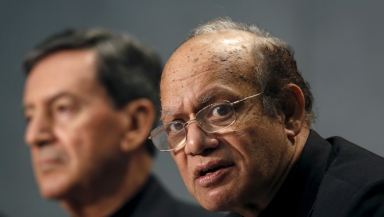
"I will not rest until our legislators do what's right by expanding Brady background checks at gun shows and online sales. This will save lives," Duncan declared in the visitors' center of the US Capitol, standing alongside friends and family of the Charleston victims and of other casualties of gun violence.
The shooting deaths of nine black Charleston church members last month sparked an intense dialogue over the legacy of slavery and its symbols, after photos surfaced of Dylann Roof, a white man charged in the shooting. They showed him posing with the Confederate battle flag on a website that displayed a racist manifesto.
But there has been little outcry for Congress to pass more gun control legislation. "It hasn't been the loudest cry," Representative Mike Thompson, a Democratic co-sponsor of legislation to expand Brady background checks, said at Wednesday's event.
The bill was introduced in March. The measure also was introduced in the last Congress but failed to get a hearing, and a similar measure failed a Senate vote in 2013.
The current bill has four Republican co-sponsors, but none attended Wednesday's event.
Opponents of enhanced background checks, including the influential National Rifle Association, say it would not stop criminals from getting guns, because criminals would just steal them or have someone else buy guns for them.
But Dan Gross, president of the Brady Campaign to Prevent Gun Violence, said he was tired of cynics who say that if Congress could not act after the Connecticut school shooting, lawmakers will not be able to act now.
Gross said that since the Connecticut school massacre, six states had passed laws expanding Brady background checks to all gun sales, "and it's time for Congress to catch up."










